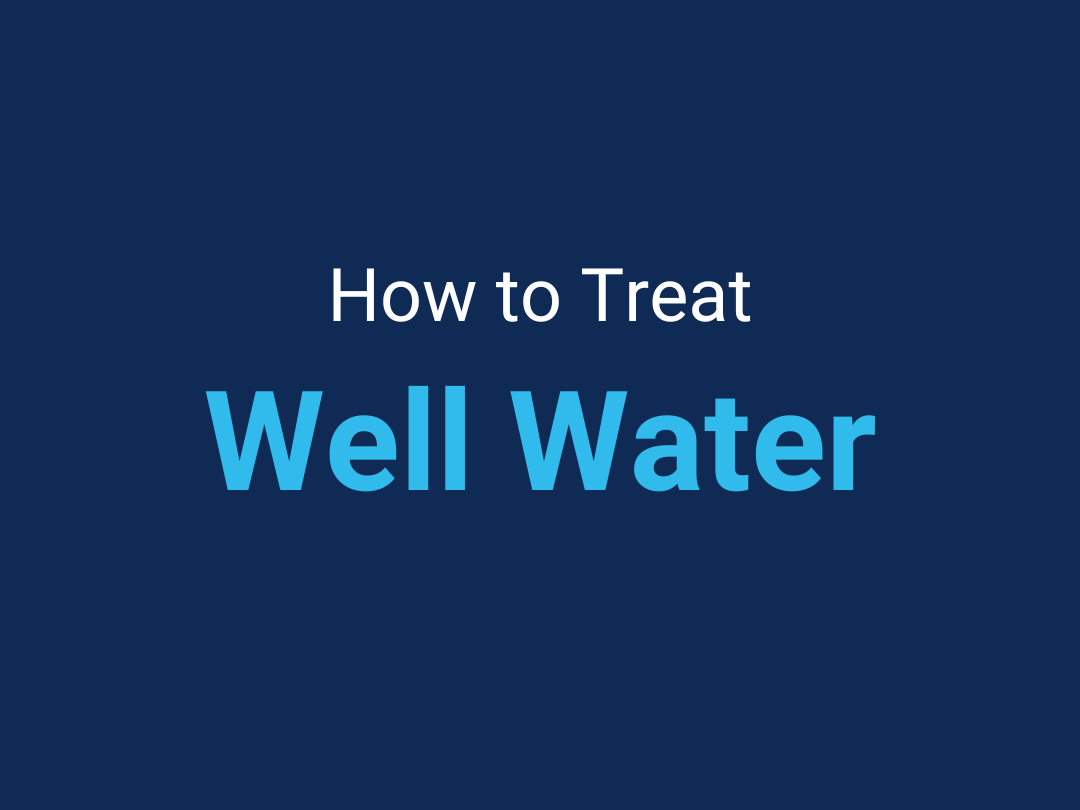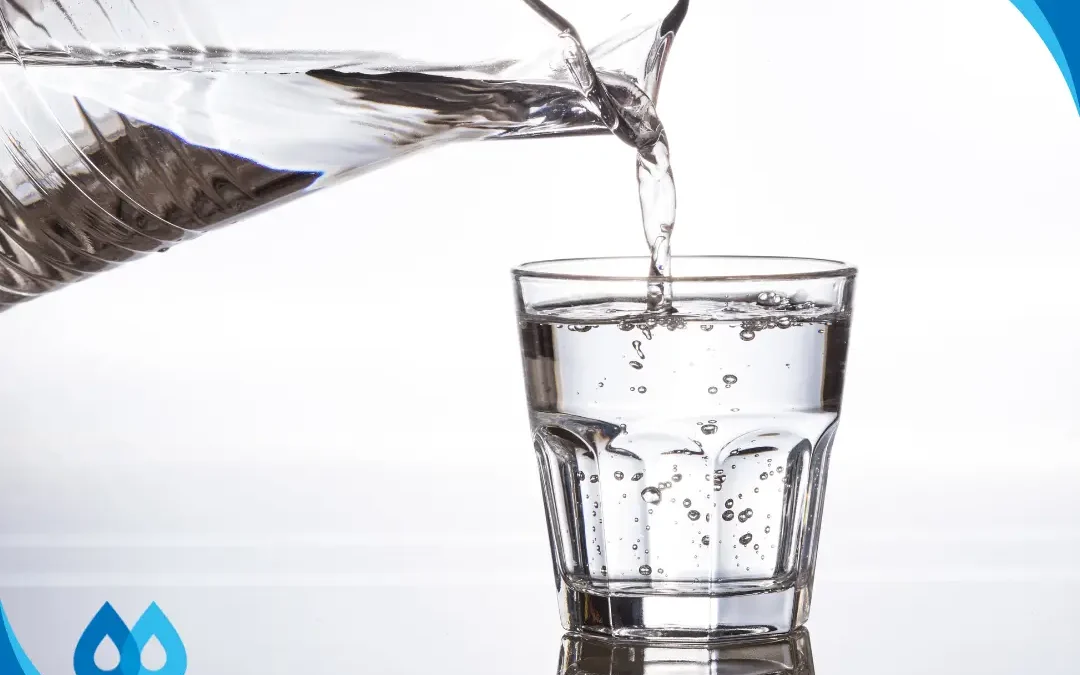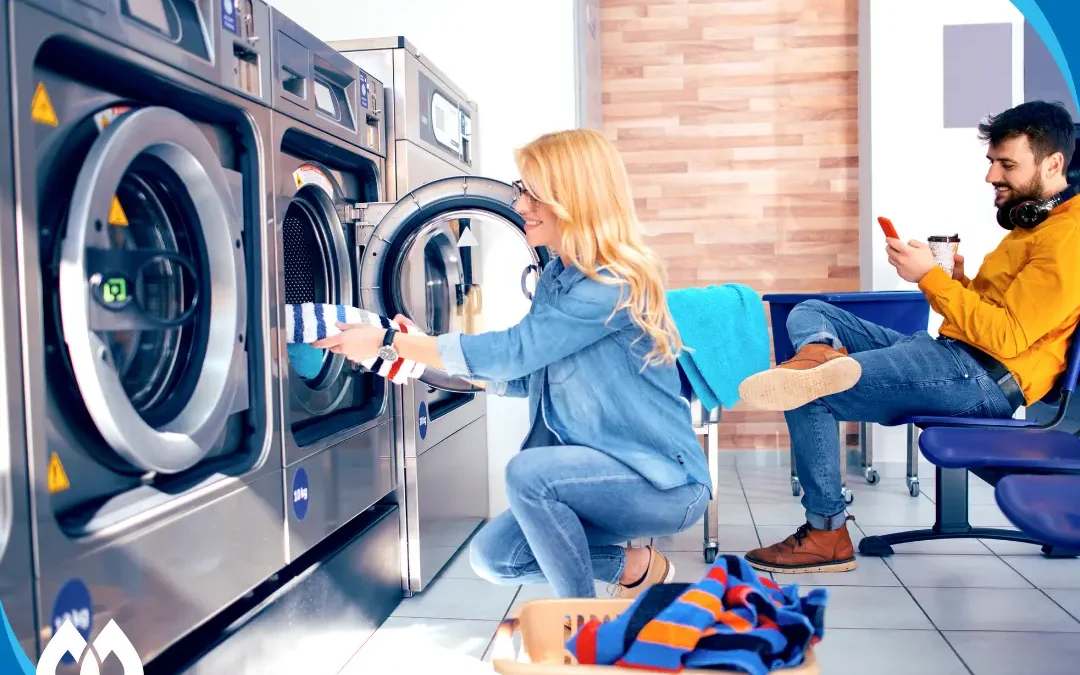There are many paths to clean drinking water, but when you want to treat well water, the rules and regulations are less transparent. To guarantee that well water is safe to drink, homeowners need to complete the appropriate testing and maintenance of all water treatment systems.
In the United States, most tap water is regulated by municipal systems and held to Environmental Protection Agency (EPA) standards. And in California, public drinking water is regulated by the Division of Drinking Water (DDW), which releases on-time notification and response levels for water quality. But for homes with private wells, the homeowner is responsible for testing their water quality and choosing a treatment system.
Is Well Water Contaminated?
Although some municipal water standards may extend to well water, private water supplies are not regulated by the EPA. To make sure your well water is safe to drink, test your water for both natural and unnatural contaminants.
Natural Contaminants
Although underground aquifers can provide some of the cleanest water, well water is susceptible to contamination from groundwater and wastewater pollution. The water may be clear and free of odor, but harmful bacteria may still be lurking. Some contaminants that naturally occur in well water include:
- Calcium and magnesium
- Iron and manganese
- Hydrogen sulfide
- Arsenic
- Radon
While the effects of these can range from unpleasant to more dangerous, most of these minerals in excess become unpleasant before they can pose any real danger. For example, while manganese and hydrogen sulfide are both harmful in large amounts, the distinctive taste and odor of these contaminants make well water unsuitable for consumption, even in small amounts.
Man-made Contaminants
Although groundwater is generally cleaner than the surface water supply, increased human activity results in increased water pollution. Common groundwater contaminants include pesticides, nitrates from improper fertilizer use or waste disposal, bacteria like E. coli from septic or manure runoff, and volatile organic compounds (VOCs) from chemicals like gasoline or dry cleaning solvents.
How to Treat Well Water – Common Treatment Methods
The best water treatment system for your home will depend on your specific water quality needs. If you are concerned about viruses and bacteria, recent or local runoff contamination, acidic water quality, or the effects of hard water, there is a water treatment system solution available.
Shock Chlorination
Shock chlorination works great as a one-time solution for well water contaminated by floodwaters, runoff, or recent maintenance. The shock process involves running chlorinated water through the water system and monitoring the chlorine levels. To reach the optimal level of 200 milligrams of chlorine per liter of water, use the chlorination tablets designed for wells. If you are using household bleach for this process, determine a safe amount with the help of an online calculator or simulator. For questions about concentration levels, contact your local extension office.
Remember that during the shock process, drinking water will be unsafe for 24 hours. Shock chlorination should not be used regularly and will not solve wastewater problems caused by nearby septic systems. Since shock chlorination can be tough on water systems and plumbing, remove any carbon filters or aerator screens to allow the full treatment process to take place. After chlorination, you can test again for bacteria to pinpoint the source of contamination.
Acid Neutralizers
Acid neutralizers work by introducing calcite or magnesium into the water supply. When water has a pH of 6.5 or less, the water is acidic. Alternatively, when water has a pH of 7 or higher, the water is alkaline. Drinking acidic water can lead to heavy metal poisoning and dental issues.
To raise the pH of well water, choose a neutralizing filter that contains calcite (calcium carbonate) or magnesia (magnesium oxide). Calcite neutralizer filters are a practical way to treat acidic well water and require minimal maintenance ranging from every 6 to 18 months.
Water Softeners
Water softeners can help to treat well water by removing minerals like calcium and magnesium and replacing them with sodium or potassium. By removing excess minerals from the water supply, a water softener system can provide your home with more than just great-tasting water! Softer water means longer-lasting appliances, smoother skin and hair, and even home protection against scale and corrosion. Water softeners are also effective at removing iron, manganese, some heavy metals and radioactive material, nitrates, arsenic, chromium, sulfates, and selenium.
There are several kinds of water softeners, including automatic water softeners, water softener exchange tanks, and even no-salt conditioners for the entire home. Depending on your household’s needs and priorities, a soft water solution could be the most effective way to treat your well water.
Reverse Osmosis
Reverse osmosis filtration systems are one of the most effective ways to filter and treat well water. Reverse osmosis technology involves multi-step filtration designed for all sizes of sediment and contaminants. And for homes with high levels of naturally occurring contaminants like nitrate and arsenic, reverse osmosis is the ideal water treatment solution.
Reverse osmosis filtration is effective at treating water for bacteria, viruses, chemical contaminants, sodium, chloride, copper, chromium, and lead, and is known to reduce levels of arsenic, fluoride, radium, sulfates, calcium, magnesium, and nitrates in drinking water supplies. Due to the intensive process, certain filtration systems can affect flow rates and water usage. Talk to one of our service experts about your water treatment needs. We offer in-home units that fit directly under your kitchen sink!
Testing Your Water Quality and Safety
Although there are few requirements for how to treat well water, the CDC recommends that homeowners test their water quality each year to ensure the safety of their drinking water. Test your well water if floodwaters or runoff reaches your land, if you experience a change in the taste, smell, or appearance of your drinking water, after system maintenance, and in the event of local water contamination.
As a homeowner with a private well, a water treatment solution is your responsibility. And while there are many paths to clean drinking water, the experts at RWI Water Systems can help you find a treatment option that works for you and your lifestyle. Ask about testing for nitrate, coliform bacteria, and industrial chemicals.




